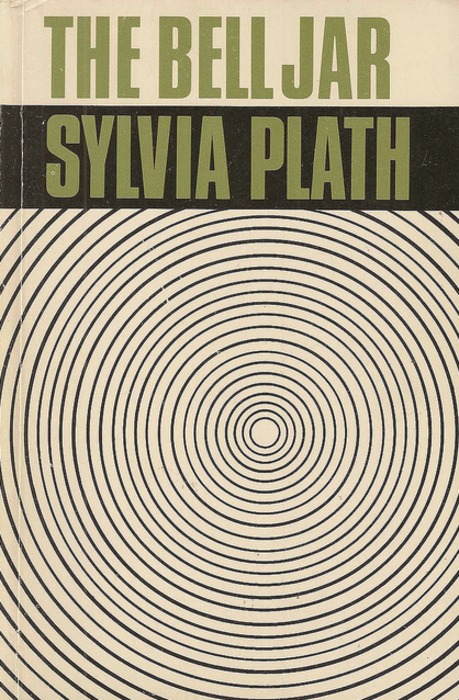The Bell Jar
Sylvia Plath

This book has quite the legacy behind it, apparently, but somehow I've always missed out on the talk about it and what it represents, and the type of people that read it. Apparently this books is popular with edgy high school girls going through their emo phase, an important feminist work etc. but that's as far as my knowledge of it goes. This will be important later.
So, the book. The book itself was pretty good. I can recognize it as an important work in its time, and I can see myself in Esther when I was at my worst. I liked how incomprehensible it felt at moments with the setting switches, it's a good way of showing on paper how time stops mattering when you're not well. Everything felt... meaningless in a way and as you read you just go along with the motions. The talk and obsession about virginity, purity and similar themes were things that went through my head when I was a teen so.. yes. Even with all of that though, and knowing it's Plath's semi-autobiography it didn't hit me as much as I thought it would. Instead, I felt pretty detached reading it. Weird how that works.
Now a "little" anecdote. I decided to read a bit about the book after I was done. To read through some articles, opinion pieces, to get a better understanding of its cultural impact I missed out on and all. And I stumble upon this article called The Bell Jar and White Feminism. Apparently in this book, Sylvia commited many horrible wrongthinks completely unfitting of your typical run of the mill progressive 50's female (sarcasm), such as comparing white characters and their expressions to other races and ethnicities, something I've seen male writers do since I started reading books in elementary school - haven't seen anyone get criticized for it and frankly I don't think there's a need to but that's just me and my outdated eastern european sensibilities. When she said a woman had a "vacant Slavic expression", I'm not going to pretend I didn't understand exactly what she meant by that, as such her comparisons and descriptions did a fine job of well, comparing and describing. Then there's also an interaction between Esther and a black worker, whom Esther treats very unkindly. That is indeed a rude and racist thing to do but... am I supposed to be shocked and apalled that a white middle class woman in the 50's who got put into an asylum after electro shock therapy, that got stripped of much of her agency is now venting out her frustrations on someone she, maybe subconsciously, maybe not, has prejudices against? Then the next banger line from this article was how Sylvia was extremely homophobic because Esther, a born and raised christian, referred to homosexuality as a "specific evil". Okay and?? Did we completely miss the lesbian context to that scene, miss...? Shit I just noticed I'm getting angry at a high schoolers article. Oh well, let me continue since I'm almost done and this last line isn't coming from the high schooler anyway. Lastly, we get this little speech about intersectionality in feminism and how "We are people with different bodies, gender expressions, faiths, sexualities, class backgrounds, abilities, and so much more. We need to take into account these differences and how they affect us, as much as we account for what we have in common. Without this kind of inclusion, our feminism is nothing." . But then, that should also include conservative, racist, homophobic and religious women too, no? Dumbasses. You can't just exclude Sylvia Plath from feminism because she wasn't a perfect 2022 yas slay kinky queer bimbo queen libfem lmfao. And, unrelated to this article I've seen people calling her a "raging, rabid anti-semite" and I did my best (first 3 pages on google ok im lazy) to find out why people called her that and the only example was that she compared herself to a jew in one poem which, you know what, read Andrea Dworkin's Scapegoat and it makes sense even!! Women being compared to Jews and vice versa as an insult is not a new thing. Yeah yeah it might have been insensitive and appropriating or whatever people say these days but I don't see how it's raging and rabid. People are making it sound like she was sad she didn't stand next to Hitler during his speeches. I can't with this. Seems like nobody is capable of contextualizing and understanding that literature isn't necessarily evil just because it shows a character having "bad" thoughts and actions.
